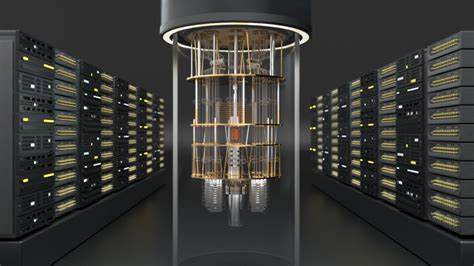
Quantum Computing: Revolutionizing Smart Building Innovation
Introduction
Smart building innovation has become increasingly important in the modern world, with the potential to revolutionize the way we live and work. In this article, we delve into the relevance of quantum computing in the context of smart building innovation. We highlight the importance and potential benefits of incorporating quantum computing in smart buildings, showcasing how this emerging technology can pave the way for unprecedented advancements.
Historical Background
To understand the significance of quantum computing in smart building innovation, it is essential to explore the historical background of both fields. Quantum computing has evolved over time, from its inception in the early 1980s to the present day, where it stands as a promising frontier. Simultaneously, smart building technology has seen remarkable advancements, utilizing the Internet of Things (IoT) and artificial intelligence (AI) to optimize operations and enhance occupant experiences. Quantum computing is now poised to take smart building innovation to the next level.
Key Concepts and Definitions
Before delving deeper, let’s define quantum computing and its fundamental principles. Additionally, we need to grasp key terms and concepts related to smart building innovation, including IoT, AI, and data analytics. The intersection of quantum computing with these concepts is essential in understanding how quantum technology can enhance smart building systems and processes.

Main Discussion Points
Point: Quantum Sensors and Monitoring Systems
Quantum sensors have the potential to revolutionize monitoring systems in smart buildings. By leveraging the principles of quantum mechanics, these sensors can provide real-time data collection and offer enhanced accuracy and sensitivity. Quantum sensors find applications in various areas, including energy efficiency and security, where their capabilities can lead to significant improvements and optimizations.
Point: Quantum Computing for Energy Optimization
Quantum computing holds immense potential for optimizing energy consumption in smart buildings. With quantum algorithms, energy management and grid integration can be significantly enhanced. Examples abound where quantum computing enables sustainable and efficient energy usage, reducing environmental impact while improving overall energy efficiency in smart buildings.
Point: Quantum Encryption and Security
In an increasingly interconnected world, cybersecurity in smart buildings is of paramount importance. Quantum encryption, based on the principles of quantum mechanics, offers unprecedented levels of security. Quantum key distribution ensures secure communication, protecting sensitive data within smart building systems. Implementing quantum encryption can mitigate potential security threats and safeguard valuable information.
Point: Quantum Machine Learning in Smart Buildings
Quantum machine learning algorithms have the potential to transform predictive analytics in smart buildings. By leveraging the capabilities of quantum computing, these algorithms can optimize building operations and improve occupant comfort. Training AI models using quantum computing can lead to more accurate predictions, enabling proactive maintenance, energy optimization, and personalized experiences.

Case Studies or Examples
Real-world examples of smart buildings incorporating quantum computing technologies serve as tangible evidence of the potential benefits. By highlighting the outcomes and benefits of these case studies, we gain insights into how quantum computing is already making a difference. Additionally, analyzing the challenges faced and lessons learned from these implementations provides valuable knowledge for future advancements.
Current Trends or Developments
Advancements in quantum computing technology have significant implications for smart building innovation. By discussing recent developments and breakthroughs, we shed light on the potential applications and collaborations between quantum computing companies and smart building industry leaders. Research findings add to the growing body of knowledge, driving further progress in the field.
Challenges or Controversies
While the potential of quantum computing in smart buildings is immense, there are challenges and limitations to be addressed. This section delves into these obstacles, ranging from technical limitations to implementation challenges. Additionally, we explore potential controversies or ethical concerns surrounding the integration of quantum computing technologies, presenting different viewpoints and debates.

Future Outlook
Looking ahead, the future implications and potential growth of quantum computing in smart building innovation are vast. By discussing potential advancements and applications, we paint a picture of a transformed industry. Highlighting areas for further research and development encourages continuous exploration and innovation.
Conclusion
In conclusion, quantum computing has the power to revolutionize smart building innovation. From enhancing monitoring systems with quantum sensors to optimizing energy consumption, quantum computing offers unprecedented opportunities. Quantum encryption and machine learning further contribute to the potential of this technology. As we move forward, the future of smart building technology and quantum computing holds immense promise.




